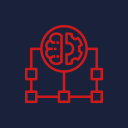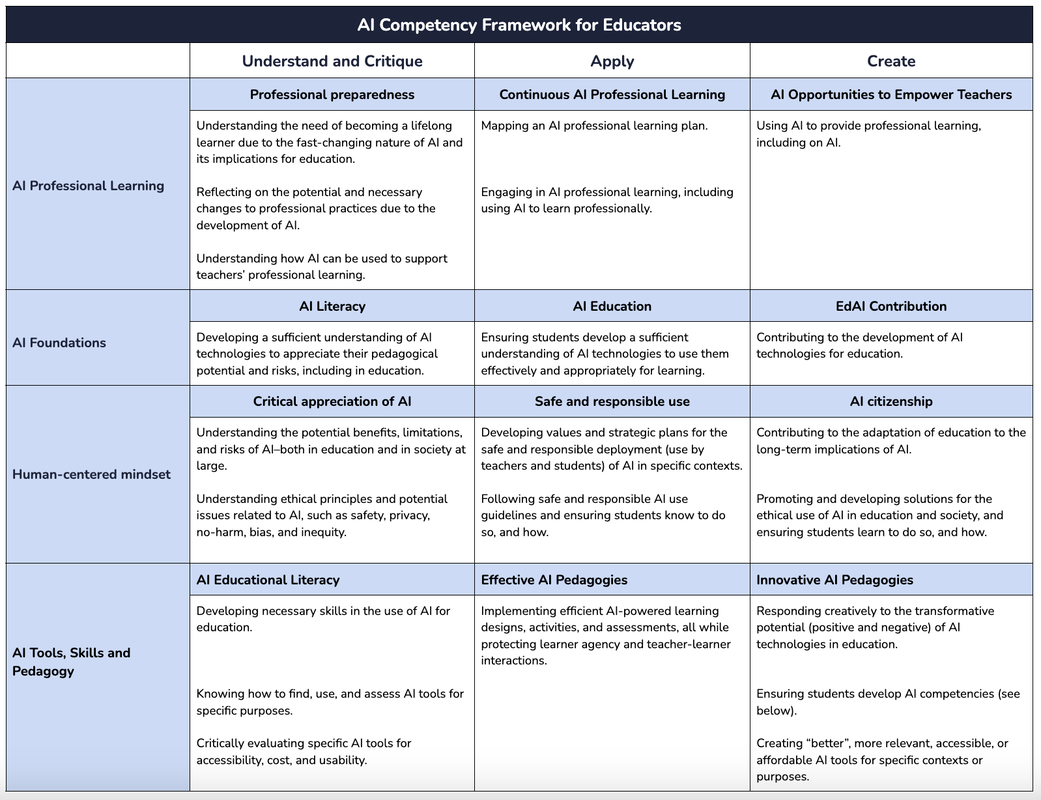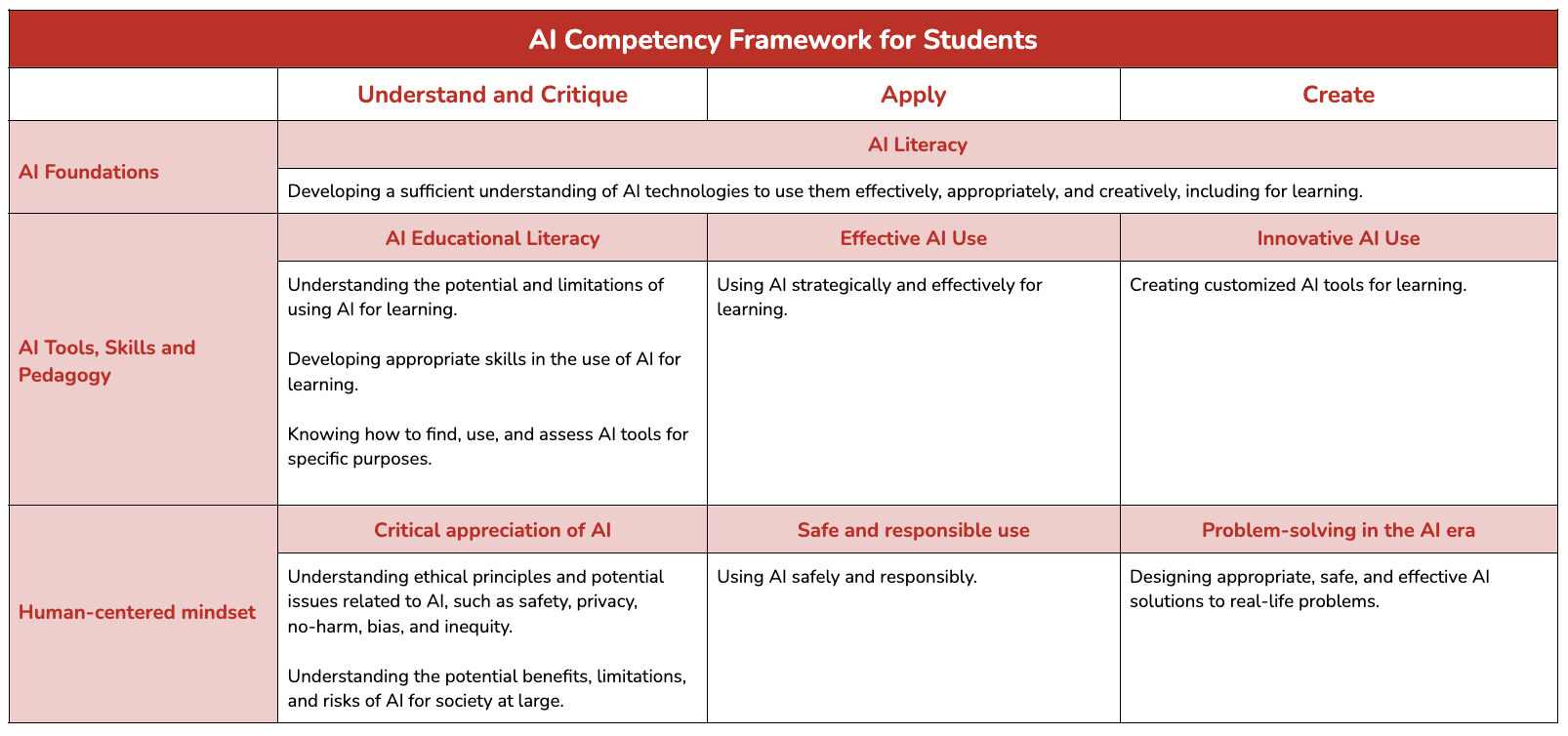UNESCO "AI Competency Frameworks for Teachers and Students": a Review and Proposed Alternative10/12/2023  During Digital Learning Week (4-7 September 2023), the UNESCO presented its draft AI Competency Frameworks for Teachers and Students for discussion, and later asked for feedback from educators. This article briefly outlines the criteria that can be used to evaluate such models, proceeds to review their strengths and weaknesses, and finally proposes alternatives with adjustments and modifications. Criteria: What Makes a Good Framework?The purpose of the UNESCO's proposed frameworks is to “provide guidance and structure” as students, teachers, and school leaders “navigate the rapidly evolving landscape of artificial intelligence (AI) in education.” As such, reasonable evaluation criteria seem to be:
Strengths of the Initial DraftsWith these criteria in mind, the main strengths of the initial drafts are that:
Limitations of the Initial DraftsHowever, the versions presented so far also come with serious limitations, which include:
Proposed Alternative FrameworksThe following frameworks are proposed modifications aimed at making the initial models:
The AI Competency Framework for Educators
Such AI pedagogies should ensure that students develop the competencies outlined in the AI Competency Framework for Students:
AI Competency Framework for EducatorsAI Competency Framework for Students
0 Comments
Your comment will be posted after it is approved.
Leave a Reply. |
|
Proudly powered by Weebly


